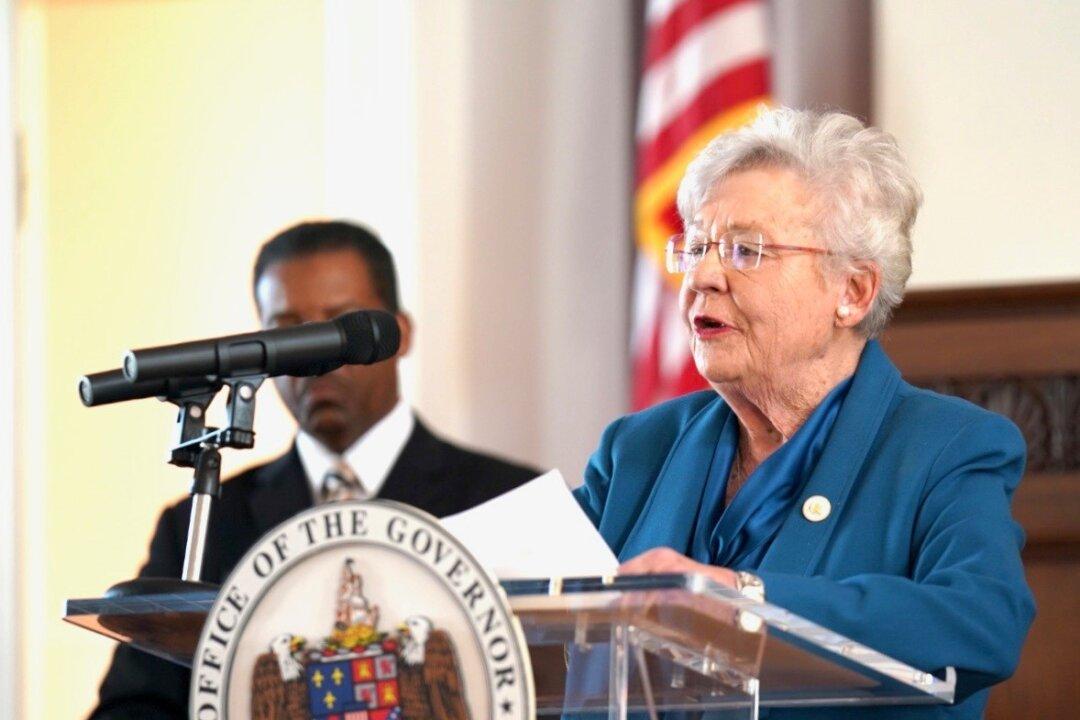Alabama Gov. Kay Ivey signed two laws on Wednesday for a “free, fair, and highly ethical” election process; one for revising the process of updating voter addresses and another to ban curbside voting.
“Our freedom of speech is rooted in our ability to vote, and a strong election process is what sets our democracy apart from every other country in the world,” Ivey said in a statement. “I appreciate the bipartisan efforts of Rep. Allen and Rep. Scott to ensure Alabama’s election process remains free, fair, and highly ethical.”





